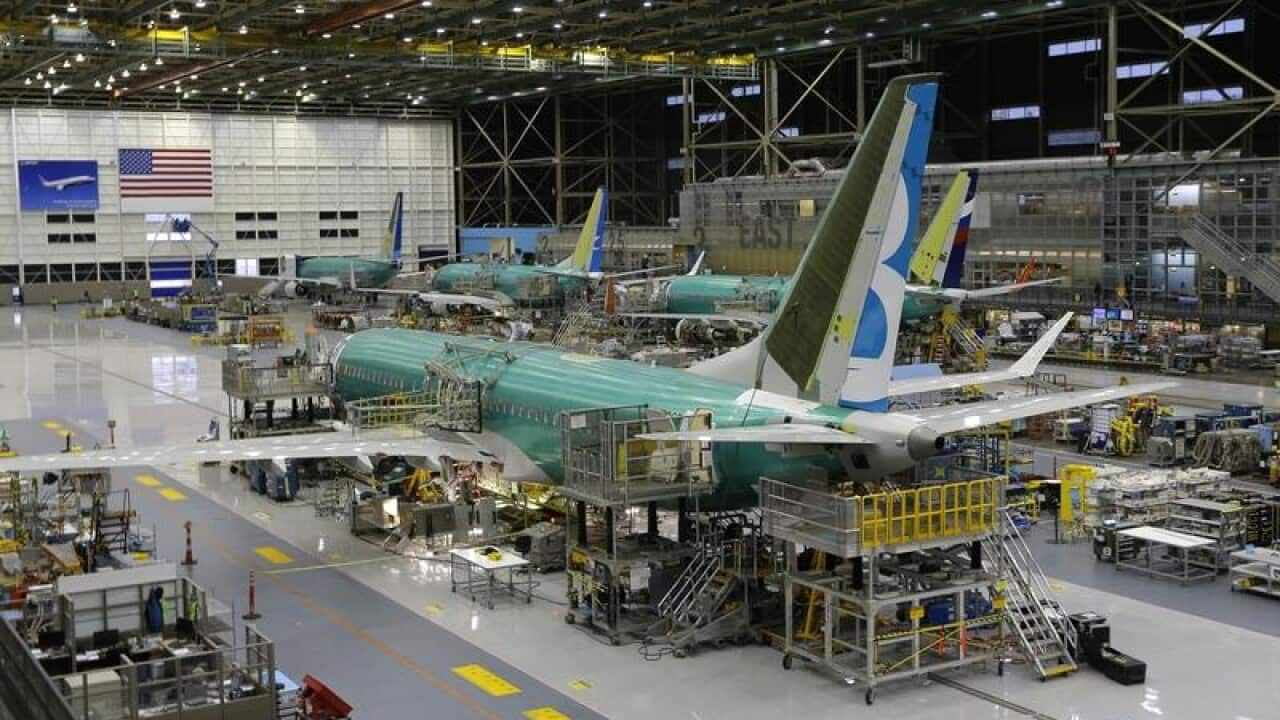Aircraft manufacturing giant Boeing and United States federal regulators say they've identified a new software problem on the 737 MAX, further delaying the process of returning the troubled jet to service.
The new issue involves software that is separate from changes to the aircraft's Maneuvering Characteristics Augmentation System, or MACS, which was involved in two deadly plane crashes.
A total of 346 people died in two 737 MAX crashes in Indonesia and Ethiopia. Regulators around the globe grounded the aircraft after the Ethiopian crash in March.
The plane maker disclosed in a securities filing on Wednesday the US Federal Aviation Administration's request to address the new problem, which it said wouldn't be covered by planned changes to the MCAS system.
Boeing said it agreed with the FAA's decision and is working on the required software fix.
The software issue involves an emergency procedure that would be used to counteract MCAS if it malfunctions, erroneously pushing the plane's nose down.
The FAA identified the problem last week during simulator tests, after an agency test pilot determined that the procedure took more time than was acceptable to execute.
Certification flight tests, an important step before regulators around the world allow the MAX to fly again, had been expected to begin as soon as last week, according to people familiar with the details.
"Boeing will not offer the 737 MAX for certification by the FAA until we have satisfied all requirements for certification of the MAX and it's safe return to service," the company said in its filing.
Over the past two months, Boeing and the FAA have been wrestling with still another issue requiring extensive engineering analyses, simulator scenarios and actual flight tests. That effort resulted in previous delays to the commercial return of the global MAX fleet.
As part of its anticipated overall approval of revised 737 MAX flight-control systems, the FAA has been looking into whether the average pilot has enough physical strength to manually crank a wheel to raise the aircraft's nose in extreme emergencies, especially at unusually high speeds.
Share


